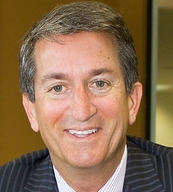In an industry capturing nearly $3 trillion in revenue, with the annual profits of major players in the hundreds of billions, the grim reality of global healthcare is barely to be believed. A World Health Organization study about top causes for premature death unveiled a laundry list of preventable diseases and easily treated conditions. This isn’t news to the industry—so why haven’t highly profitable companies done more to improve global health?
This isn’t about money (though many life-threatening conditions are well-understood, with known treatments that can be meaningfully addressed through funding). It is about using other, more important tools that we as healthcare leaders have at our disposal.
Think about it: as leaders and entrepreneurs in the healthcare industry, aren’t we uniquely positioned to recognize issues, patterns and solutions that could seismically change the global health landscape? Between our purview over emerging methods and technologies, our access to world-class human and logistical resources and our influence in proliferating solutions, failure to save lives does a disservice to the companies we lead and the public we ultimately serve.
So what does leadership look like? In this era, it requires mobilizing our collective intelligence toward innovation and integration that is meaningful for large populations. The quality of invention around hundreds of new medical technologies may be astounding, yet few of the amazing new apps, devices and drug therapies we see hold the potential for global impact.
Success may equate to a simple shift in focus. What new technologies, if applied to major health crises rather than to rare diseases, could transform communities around the globe? A shift in priorities is also in order. How much could be gained if technologies were not developed with profitability in mind? How much more could be gained if competition among major players was forgotten, and knowledge shared in the name of public service?
Healthcare is a basic human right. When we begin addressing patient care from that perspective, we find ourselves in a position to incite meaningful change. That was the mindset I had when I founded Physicians Interactive six years ago. It led to the development of Omnio, a point-of-care mobile app that helps clinicians access and organize information needed to provide high quality care. And now Omnio is helping to save lives through Health eVillages, which provides donated mobile devices loaded with Omnio and other resources to underserved communities. Programs in Uganda, Kenya, Haiti, rural Louisiana and China are providing much needed medical references to clinicians who previously lacked such access.
Developing these products required time, money and effort, yet the basic solutions were simple, their purposes straightforward and their outcomes supremely worthwhile. Yet there are more—so many more—solutions such as these, and it is incumbent upon us to bring them to fruition. As healthcare leaders and problem solvers, we need to show up, be present and listen. We need to be committed to proactivity, to driving toward (rather than falling into) solutions. The answers will come if we are so bold as to ask the questions. And when we do hear them, we have to be prepared to act.
Donato Tramuto is chairman and CEO of Physicians Interactive







